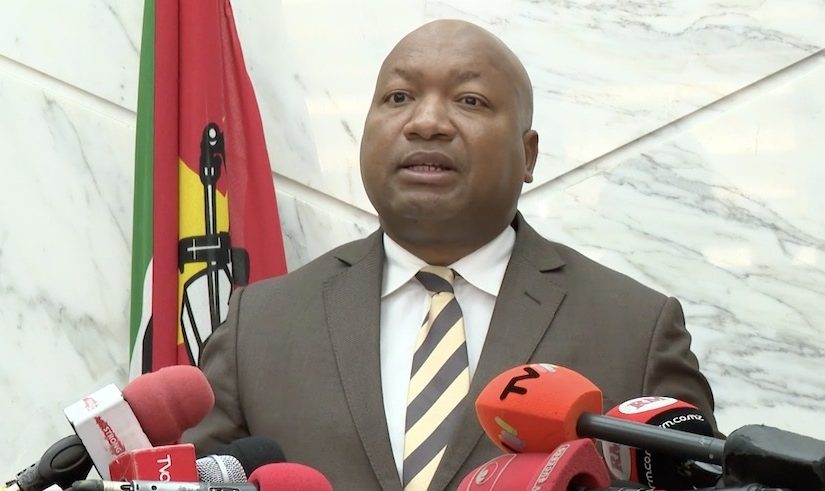Mozambique: Analyst warns of 'complex' local impact of gas project resumption in Cabo Delgado
Mozambique: Commission has 15 days to investigate mistakes in social science textbook – AIM

Photo: TVM
The Mozambican government has given a 15 day deadline to the Commission of Inquiry set up to discover the causes behind the mistakes discovered in the 6th Grade Social Science textbook.
“The people who made the errors in the 6th Grade Social Science textbook will be held accountable. This commission has up to 15 days to work and bring results”, promised on Tuesday the spokesperson for the Council of Ministers (Cabinet), Deputy Justice Minister Filimão Suaze.
He was speaking to reporters two days after the Ministry of Education announced the creation of a commission to investigate the causes of the mistakes.
“The Government has learned that some mistakes have been found in the Social Science textbook for the 6th grade and has been informed that a commission of inquiry has been set up, with the task of working in a swift manner, so that the situations that have led to the book being presented in these terms are raised. When the culprits have been identified, there will be necessary and timely accountability”, said Suaze.
The manual was paid for by the World Bank and was published in Portugal by the publishing house Porto Editora.
Over 970,000 copies of the book arrived in Mozambique a few days ago.
Porto Editora has expressed its willingness to collaborate with the Commission of Inquiry to determine the origin of the problems detected in the textbook.
At the same time, an errata sheet is being prepared, which the Ministry hopes will reach students and teachers as soon as possible.
The worst errors concern basic geography. In a section dealing with pre-colonial states in southern Africa, the book states that Great Zimbabwe was bordered to the north by the Red Sea and the Gulf of Aden. That would put Great Zimbabwe in the Arabian Peninsula, thousands of kilometres from its true location.
It also claimed that Malawi and Zambia are to the south of Zimbabwe, whereas in fact they are to the north.
At one point, the book puts Mozambique in East Africa, along with Zambia, Zimbabwe and Malawi. The authors seemed blissfully unaware that, ever since independence in 1975, Mozambique has been classified as a southern African country, and was a founding member of the Southern African Development Community (SADC).
The book claims that the Bons Sinais river, in Zambezia, is the same as the Inharrime river in Inhambane province, while in fact they are separated by hundreds of kilometres.
If the Commission only looks at the sixth-grade book, its work will be far from complete.
Journalists have ben sifting through other textbooks from Porto Editora, and have found scarcely credible mistakes in Portuguese and in maths. For example, a maths book claims that the number ten can be expressed as five multiplied by three.
But easily the worst “mistake” is a political whitewash of colonialism in the tenth grade history textbook, which claims: “The colonial epoch was characterized as a moment of relative peace and stability. Ethnic wars ceased to happen in almost all of Africa, since the African was no longer an African, not a Macua, not a Sena, not a Shangaan, not a Kikuyu, not an Ovimbundu, not a Nama. He became Portuguese, Spanish, French, Belgian. German and Italian”.
Thus the colonialist claim that Africans are just black Europeans has been disinterred and given a new lease of life in a Mozambican textbook. So far nobody has accepted responsibility for this paragraph.
The Mozambican Teachers Union, the ONP, has protested that teachers were not consulted in writing the textbooks, and perhaps the embarrassing mistakes could have been if teachers had been involved in the writing and proofreading.
The editor hired by Porto Editora for the sixth grade social science book is a certain Firoza Bica. It is not yet known what qualifications, if any, she has for the task.












Leave a Reply
Be the First to Comment!
You must be logged in to post a comment.
You must be logged in to post a comment.